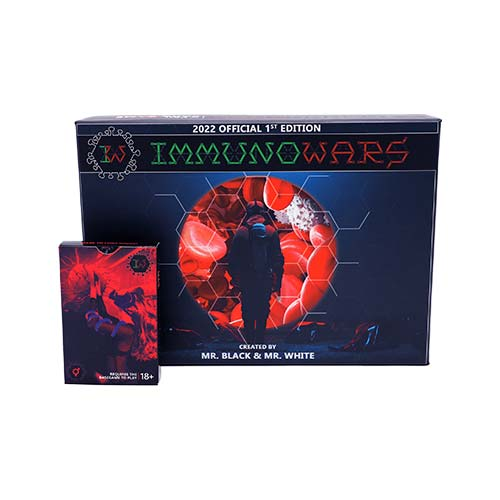Authors: In collaboration with Dr Arnold van der Meer, written by Liliana Sánchez Rocha, MSc.
Read time: 8 minutes.
Cover photo taken from iStock.com/MohammedHaneefaNizamudeen.
You might think that needing kidney transplantation is perhaps the result of a one-in-a-million medical condition. But… do you regularly smoke, drink, or have embraced a diet rich in delicious, processed food? With time, these seemingly common habits take their toll and can cause obesity, diabetes, and cardiovascular diseases (1). These are important factors that might push some to develop chronic kidney disease (CKD) (2, 3). When the kidney loses more than 85% of its function, then your name might be added to a waiting list thousands hope to escape. How does this list work? What´s behind matching donors and patients? Can you keep a transplanted kidney for life? What is science doing about it? ImmunoWars invites you to step into the shoes of an expert in kidney transplantation. In this exclusive interview, Dr. Arnold van der Meer, an experienced medical immunologist, will walk us through the vital decisions and challenges behind transplantation. Are you taking good care of your kidneys? (4, 5)

How does the immune system decide what stays and what goes?
Dr. van der Meer began his career in the area of transplantation during his PhD, where he explored the molecule that gives us our biological identity: human leukocyte antigen (HLA) (6). There are countless variations of HLA, and each person has a unique combination that is expressed by nearly every cell in their body. Cells displaying a different HLA combination are recognized as intruders and targeted for destruction. This is a wonderful immune tactic that protects us from diseases, but in the world of transplantation, it turns into a major challenge. To prevent the destruction of a transplanted organ, donor and patient must have the most similar HLA possible, enough to camouflage the new organ from the patient’s immune system.
Finding an HLA match is already like finding a needle in a haystack! But it becomes more complex when there is high demand and low availability. “The demand for kidneys in the Netherlands is not decreasing; in fact, it’s rising due to a combination of an aging population and unhealthy lifestyles” explains Dr. van der Meer. In 2024, 3,384 patients were on the waiting list for one of the 821 available kidneys (7, 8). One way to address this growing challenge is through collaboration: “If you want to find the best possible match for a patient, you need to work together.” Under this basis, the Eurotransplant Foundation was created in 1967 (9). Its goal is to allocate organs from Austria, Belgium, Croatia, Germany, Hungary, Luxembourg, the Netherlands, and Slovenia.
Do doctors have favorites when allocating kidneys?
Not at all. Matching an organ requires very controlled and methodic steps: “In order to decide, there is a special system that analyzes several elements to decide which patient will be the first to receive the organ” says Dr. van der Meer. This first step is done by Eurotransplant, which analyzes critical elements like: The waiting time of the patient, similarities of HLA among patient and donor, and whether the patient has antibodies against the HLA from the donor. Surprisingly, some patients have already developed heavy weapons (antibodies) against certain HLA. If the patient has high levels of this artillery, rejection is very likely… although there is much more to it.
What are donor-specific antibodies, and why do they pose a threat to successful transplantation?
“When a patient has antibodies against the HLA of the donor, we call them: donor-specific antibodies (DSA),” Dr. van der Meer explains. “About 75% of women who give birth develop antibodies against the paternal HLA. Usually, they disappear, but in approximately 20% of cases, they remain." Additionally, “platelet transfusions and previous transplants can predispose to form DSA. However, finding antibodies does not necessarily mean that they are harmful; they pose a major problem only if they fix the complement.” Fixing complement is the signal of immediate destruction. If patients were transplanted regardless of these damaging DSAs, the organ would be immediately attacked and lost while risking patients’ lives. Unfortunately, “20% of the patients in the waiting list are immunized, and within this group, there is a subgroup of highly immunized.” Rising donor numbers and international collaboration have become crucial for all patients, but especially for this group.
What exactly happens during a kidney transplant?
“Approximately half of the organs come from post-mortem donors.” To preserve their viability, the events that precede the transplantation need to be fast and precise, in the morning or at midnight. These are some key steps:
1. First, the donor´s HLA profile is tested and uploaded to the Eurotransplant database.
2. Then, the system generates a list of 10 potential recipients based on HLA matching scores and urgency.
3. The hospital of the top candidate is contacted.
4. The medical team assesses the match: Does the patient have DSAs against the donor? Do those DSAs fix complement? Is the patient clinically stable and available for surgery? (Criteria may differ slightly depending on institutional protocols.)
5. If all conditions are met, a crossmatch test confirms whether the patient’s DSAs attack the donor’s cells.
6. If DSAs don’t attack the donor’s sample, the transplant can proceed.
If the match is rejected due to immunological risk, the process repeats with the next candidate. This highly controlled process aims to give all patients equal rights while taking fundamental biological risks into account.
Video on the steps of transplantation, taken from Eurotransplant.org
Is a transplanted kidney always at risk of rejection?
In general, yes, and there are many factors involved: “Is the original disease solved? If not, there is a high chance of damaging the new kidney.” Besides this, the patient has to adhere to lifetime treatment. To this day, immunosuppressants are fundamental to reducing the immune system's activity to avoid a kidney attack. The price? The protection against diseases and cancer is weakened, and ironically, the kidneys might get damaged in the long run. But stopping medication is not an option. “It's tough to take all these different drugs every day, but when they stop, this most likely leads to rejection.”
The future of transplantation: is it possible to eliminate rejection?
The field of HLA is expanding, and instead of focusing on the entire molecule, researchers are now zooming in on specific regions to identify shared elements across different HLA types. “We hope this will allow us to more accurately predict which mismatches are acceptable,” expert says.
Another key area of advancement is in preventing early, antibody-driven rejection: “There is a relatively new drug that's being tested at this moment, It cuts antibodies within minutes, so they won´t be harmful anymore.” Currently, this is studied for highly immunized patients who are otherwise difficult to match. (10) Eventually, antibodies come back with time, but… “In one or another way, some transplanted organs become resistant to those DSAs; this intriguing phenomenon is called accommodation (11).” Scientists are trying to unravel the mechanism behind it, and its potential to induce it. Is it possible to eliminate rejection? (12) Other questions being explored are: can we get rid of HLA? (13) and can we make organs for transplants? “There is much more to explore, not only in transplantation but in immunology in general, that’s what I find exciting” Dr. van der Meer finalizes.
How can you give someone another chance in life?
A transplant can mean a second chance in life for someone, but only if a match is found in time. Did you know that HLA is tightly linked to ethnicity (14)? Global migration makes matching even more complex. You may never need an organ transplant if you take good care of your body, but you could save someone who does! Becoming a donor won’t affect your medical care, and organs are only taken after confirmed brain or cardiac death. Learn more at transplantatiestichting.nl. Want to explore Dr. van der Meer’s research? click here.
Organ donation: how does that work?
Taken from Nederlands Orgaandonatie en transplantatie stichting
About ImmunoWars:
ImmunoWars is the most exciting board game about viruses, bacteria, immunology, and science. Our goal is to make health sciences accessible and fun through gaming innovations and science communication. Curious about us? Visit our webpage!
Recommended literature:
1. Record kidney transplants in the Netherlands as salt intake stays high. NL Times. 2025.
2. What is Kidney Failure? National Institute of Diabetes and Digestive and Kidney diseases2018 [Available from: https://www.niddk.nih.gov/health-information/kidney-disease/kidney-failure/what-is-kidney-failure.
3. Team NPE. Kidney failure National Kidney Foundation2025 [Available from: https://www.kidney.org/kidney-topics/kidney-failure.
4. Your Kidneys and How They Work National Institute of Diabetes and Digestive and Kidney Diseases2018 [Available from: https://www.niddk.nih.gov/health-information/kidney-disease/kidneys-how-they-work.
5. Abramyan S. HM. Kidney transplantation2023 16 - April - 2025. Available from: https://www.ncbi.nlm.nih.gov/books/NBK567755/.
6. PJ. D. Human leukocyte antigen (HLA) system MSD Manual Proferional Edition2024 [Available from: https://www.msdmanuals.com/professional/immunology-allergic-disorders/biology-of-the-immune-system/human-leukocyte-antigen-hla-system.
7. Cijfers over wachtlijsten orgaantransplantatie [Internet]. Available from: https://www.transplantatiestichting.nl/medisch-professionals/cijfers-nts/wachtlijsten-organen.
8. Cijfers over orgaandonaties in Nederlands [Internet]. Available from: https://www.transplantatiestichting.nl/medisch-professionals/cijfers-nts/orgaandonatie.
9. History and timeline Eurotransplant2025 [Available from: https://www.eurotransplant.org/about-eurotransplant/history-and-timeline/.
10. Kanbay M, Copur S, Guldan M, Topcu AU, Ozbek L, Hasbal B, et al. Imlifidase in kidney transplantation. Clin Kidney J. 2024;17(3):sfae033.
11. Platt JL, Cascalho M. Accommodation in allogeneic and xenogeneic organ transplantation: Prevalence, impact, and implications for monitoring and for therapeutics. Human Immunology. 2023;84(1):5-17.
12. Kalejaiye TD, Barreto AD, Musah S. Translating Organoids into Artificial Kidneys. Curr Transplant Rep. 2022;9(4):276-86.
13. Mera T, Faustman DL. Removal of donor human leukocyte antigen class I proteins with papain: translation for possible whole organ practices. Transplantation. 2015;99(4):724-30.
14. Madbouly A, Bolon Y-T. Race, ethnicity, ancestry, and aspects that impact HLA data and matching for transplant. Frontiers in Genetics. 2024;Volume 15 - 2024.




